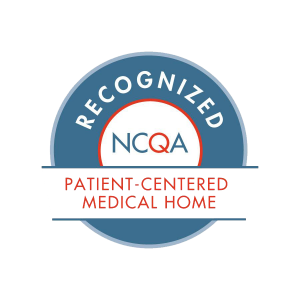
Ever heard of shingles? Ever had it? Each year, about 1 million Americans are diagnosed with this condition and it is estimated that 1 in 3 will experience it in their lifetime.
Shingles is reactivation of the chicken pox virus and typically affects older individuals, especially those over age 60. I find myself being asked more and more about shingles and shingles vaccines, and encourage individuals to be well-informed on this important topic.
How does someone get shingles?
Most people have either been infected with the chicken pox virus or vaccinated against it as children. In fact, studies have shown that over 99% of Americans 40 years and older have had chickenpox even though some may not remember. After this infection clears, the virus is still able to live in a dormant state in our nerves. For many people, the virus will stay there forever and you’d never know you carry it. For others, the virus reactivates, and when it does, a painful rash that often looks like a single stripe or band on the body develops. The rash typically consists of blisters that scab after a week, and resolve over 2-4 weeks.
Age is the most important risk factor for the development of shingles and after age 50 there is a significant increase in the number of cases. It is thought that with aging, our immune system wears down, and ultimately the virus is able to overcome this and cause disease.
Can shingles be treated?
Yes, antiviral medications can help heal the shingles rash faster, reduce pain and reduce contagiousness. However, these medications are most effective if they are started within the first 3 days of symptoms so it is important to see your provider right away if you think you have shingles. At Pacific Medical Group in Canby we strive to have daily walk-in/ urgent/ same-day appointments available, even for new patients, so please think of us including when you have urgent needs!
Are there complications of shingles?
One of the most common complications from shingles is pain in the area of the rash, after the rash has resolved. This condition is called “post-herpetic neuralgia,” and about 15% of people with shingles will experience it. Sometimes this pain resolves after a few weeks and is relatively mild. Sometimes this pain is quite severe and can last indefinitely.
Other complications of shingles include skin infections and eye problems, so it is important to see your provider if you think you have shingles.
What should I know about shingles vaccines?
There are 2 shingles vaccines to consider. Zostavax has been available since 2006 and can be used in healthy individuals 60 years and older. It is a single injection that reduces your chances of developing shingles by 50 to 60% and also reduces your chances of post-herpetic neuralgia. Zostavax is a live vaccine and therefore cannot be used in those with a compromised immune system.
A second vaccine, Shingrix, has been available since 2017. It is approved for use in those 50 years and up, and is now the preferred shingles vaccine for most people. It is given as 2 injections that must be separated by at least 2 months, and has been found to be more than 90% effective in reducing your chances of developing shingles. In fact, it is recommended that if you’ve had Zostavax previously, that you now get Shingrix because of the additional protection it affords.
I have seen 2 issues come up with Shingrix – cost and side effects. Shingrix costs about $300 total for the 2 injections and some insurance companies do not cover it. It is best to check with your insurance company or pharmacy before getting the vaccine to avoid unexpected expenses. Second, Shingrix does have a higher rate of side effects. About 10% of people have side effects such as muscle aches, fatigue, fever and headaches with Shingrix whereas less than 1% of people have such side effects with Zostavax.
Should I get vaccinated?
I do recommend shingles vaccination for most of my patients; however, it is important to talk with your provider about your individual health to determine if shingles vaccine is right for you.
A recent study of Medicare beneficiaries over age 65 found that shingles vaccine is under-utilized despite its proven effectiveness. As few as 4% of people between 2007 and 2009 who were eligible for the vaccine received it, according to this study. I would like to think that since 2009 the medical community has done a better job getting folks vaccinated, but time will tell.
Where can I get more information?
The providers at Pacific Medical Group are ready to serve you. Please ask!
More information is available through the Centers for Disease Control and Prevention (CDC) website: http://www.cdc.gov/vaccines/vpd-vac/shingles
Michael Csaszar
Michael Csaszar, MD is a Board Certified family physician at our Canby clinic.


